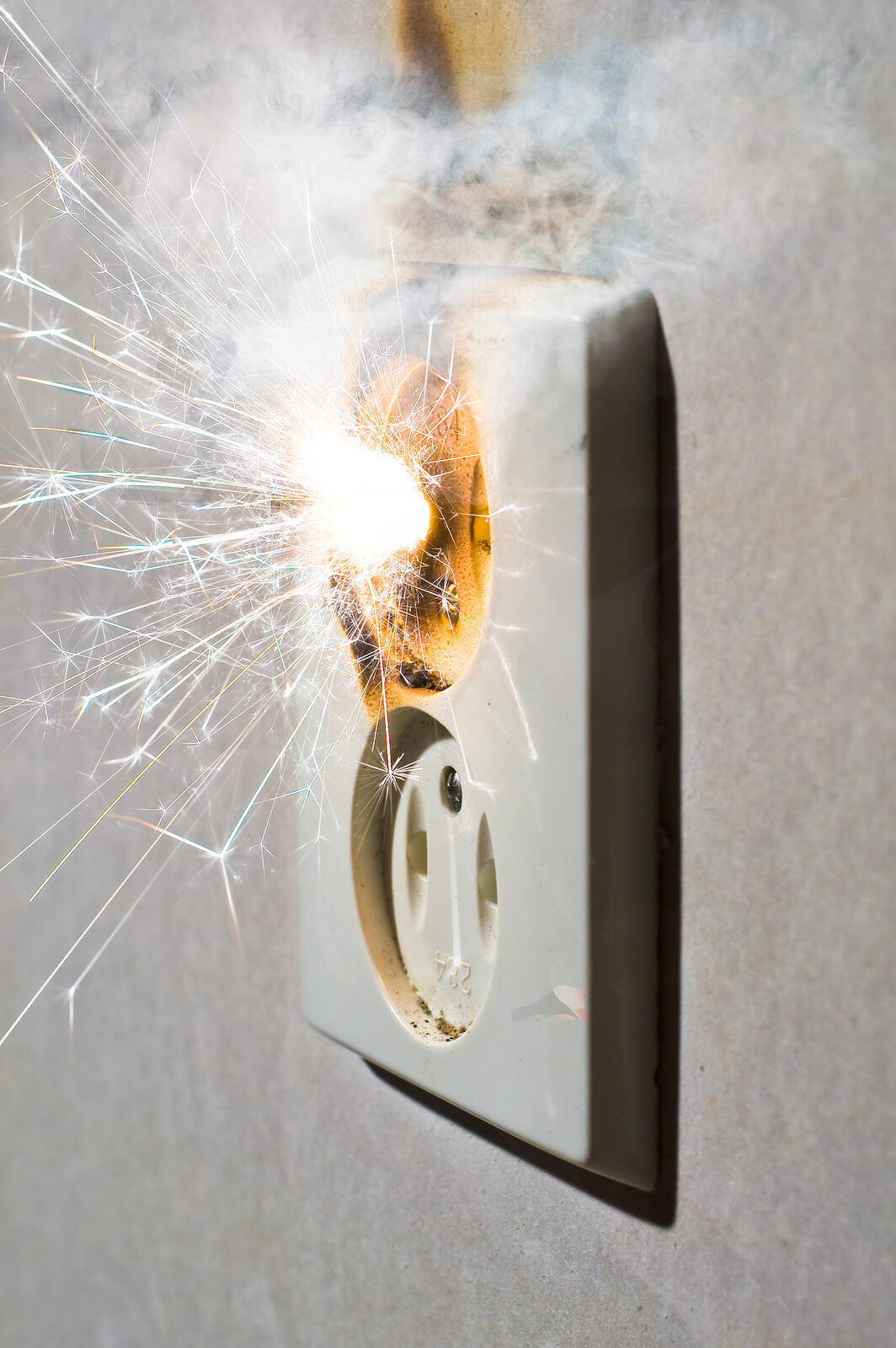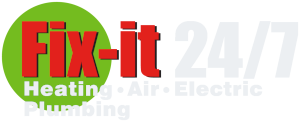Top Home Electrical Safety Tips for Electrical Safety Month
April 27, 2018

May is Electrical Safety Month, sponsored by the Electrical Safety Foundation International (ESFI). Every year, ESFI launches a new campaign to educate people about electrical safety.
Electrical safety is crucial in homes, schools, and workplaces. Electrical issues can be the cause of injury and even fatality. Being well-informed about how to use and not use electrical devices can be life-saving.
This year the focus is on “Understanding the Code that Keeps Us Safe.” And by code, they mean the National Electric Code (NEC). The National Electric Code is the standard for safe electrical installation and inspection in all 50 states.
The NEC is on a three-year cycle. New updates are added to the code every three years to reflect the changing times and any new electrical safety technology. New safety technology is always developing and it’s important to ensure that your home is up to code.
Interesting facts about the NEC from ESFI:
- There have been 15 code revisions since 1974, the year the average American home was built
- The National Electrical Code is updated every 3 years to include the latest in proven safety technology
- The National Electrical Code creates a universal electrical safety standard. Allowing all new and renovated construction built to code to be safe from electrical hazards
- The National Electrical Code applies to new construction and renovations. The code is only in effect after it is adopted by the state or local jurisdiction
Source: ESFI.org
The NEC as it relates to heating, ventilation, and air conditioning (HVAC) mostly has to do with conductors, temperature ratings, and proper wiring, voltage, and amperage.
Up-To-Electric-Code: Ground Fault Circuit Interrupters (GFCI)
It’s in the code that all of your kitchen and bathroom outlets need to be GFCI-protected. GFCIs protect you from electrocutions caused by moisture. ESFI defines GFCIs as “electrical safety devices that trip electrical circuits when they detect ground faults or leakage currents.”
There is more moisture present in these areas of the home: kitchen, bathrooms, laundry rooms. According to the NEC, you need to have working GFCI outlets in all of these rooms.
Additionally, 210.63 requires a GFCI-protected outlet within 25 feet of any heating, air conditioning, and refrigeration equipment.
As a general rule, it’s a good idea to have GFCI-protection for all of your outlets. Consider installing whole-home ground fault protection at the breaker box.
Here’s how to test your GFCI:
- Push the RESET button
- Plug in a nightlight or similar device
- The nightlight should be ON
- Press the TEST button
- The nightlight should turn OFF
- Push the RESET button again
- The nightlight should turn back ON
- If the device does not turn on, contact a qualified electrician to inspect the outlet.
Source: ESFI.org
Ideally, you should be testing every month. If your GFCI protection isn’t working, contact an electrician.
Up-To-Electric-Code: Arc Fault Circuit Interrupters (AFCI)
AFCI is the other important acronym to remember when it comes to complying to electrical safety codes in your home. Outlets need to be protected in your whole home.
According to the most recent code, AFCIs are required for every outlet in the home.
They can be installed at the breaker box for whole-home AFCI protection. Monthly, go to your electrical breaker box and test all of your AFCI breakers. If you don’t see they are protected, call a professional electrician to get your home up-to-code.
AFCIs protect the home from high temperature electrical and dangerous arcing situations, protecting your home from any kind of electrical fire. They are incredibly important for preventing electrical fires.
No matter if you have a window air conditioner or a central air system, all HVAC equipment must be plugged into an AFCI-protected circuit.
GFCI is more about electrocution, while AFCI is more about preventing an electrical fire.
Home Electrical Safety Tips
- Repair or replace any damaged wiring, plugs, or other electrical equipment.
- Extension cords should never be used on a permanent basis. If you need additional outlets, contact an electrician.
- Never run extension cords or wires under rugs, carpet, or in high-traffic areas.
- If any outlets or switches are warm/hot to the touch, turn off power to that circuit and contact an electrician right away.
- If you are experiencing frequently tripping breakers, this could be a warning sign. Avoid overloading your circuits and contact an electrician if it happens repeatedly! You could have a dangerous arcing situation somewhere in the electrical system.
- Keep electrical wires and cords out of reach of children and pets. Invest in tamper-resistant receptacles if you have young ones at home.
- Never use staples, nails, or anything metal to hold cords in place. Use plastic twist ties or electrical tape instead.
- Make sure your HVAC, dryer, refrigerator, and other electrical equipment has enough clearance for proper air circulation.
- If you notice a downed power line, call 911 right away. The ground could be energized up to 40 feet away.
- Inspect the power lines around your property and keep trees pruned to keep them from interfering. Usually, the city comes out and trims the trees around power lines for the city. Don’t attempt to trim trees around power lines yourself! Contact your city officials and ask them to send someone out to trim the trees around your property.
- Never attempt to use electrical equipment when the ground, your hands, or feet are wet. This is especially important when it comes to your electrical panel.
- Never store flammable materials around your HVAC or water heating equipment. This includes books, newspapers, fabrics, paint, toys, and chemicals. There should be a minimum 3-foot clearance around your heating and cooling equipment.
- Make sure any kids in the home know that the area around ovens, HVAC, and water heating equipment is a no-play zone.
- Whenever unplugging a device, always firmly grasp the plastic plug itself. Never yank a plug out by the wire.
The Importance of Professional HVAC Service
Most of the NEC section having to do with heating and air conditioning equipment pertains to HVAC installations. The NEC guidelines are complicated and should only be left to professionals devoted to understanding its ins and outs.
Professional HVAC technicians should know how the wiring is supposed to run, in addition to a myriad of other topics. Seemingly small things, such as the difference between copper and aluminum wire, can mean the difference between safety and disaster.
HVAC installations require a lot of electric code knowledge. It’s so complicated that the U.S. EPA estimates that around half of all HVAC systems are improperly installed. These mistakes often lead to energy efficiency and indoor air quality problems.
Stay up to speed with the latest in home and HVAC safety by following Fix-It 24/7!
We offer professional HVAC installations. Want to know if your home meets the current NEC guidelines for home electrical safety? Electrical Safety Month is the perfect time to find out!
Service You Can Count On
We came from humble beginnings, having started as just a small family
business. And while we’ve experienced growth, Fix-It 24/7







